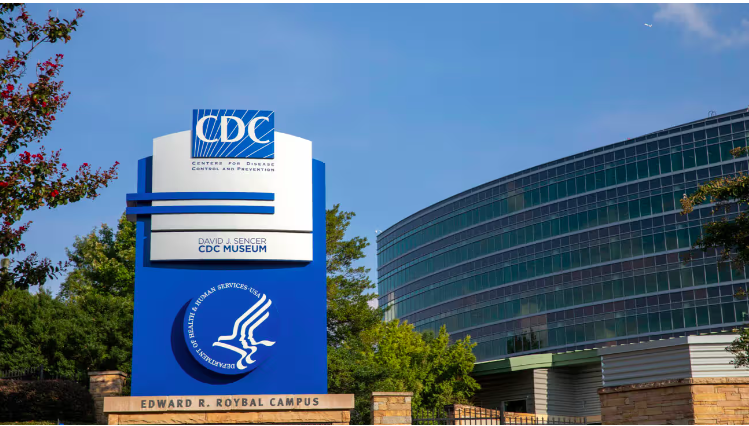Health
Are Weight Loss Pills Safe For The Body?

Are Weight Loss Pills Safe For The Body?
Depending on which ingredient you take, weight loss pills can cause a variety of side effects. High doses of caffeine can lead to jitters and shakiness.
Some people are also more sensitive to certain ingredients, such as caffeine, which can increase the risk of heart problems and anxiety.
Other ingredients can alter how your body absorbs fat, resulting in constipation, diarrhea, and nausea.
Side Effects Of Phentermine

Phentermine for weight loss can cause serious side effects, including higher blood pressure and arteries that narrow.
It can also cause agitation, hyperthyroidism, diabetes, glaucoma, and even drug abuse. For these reasons, Phentermine should be avoided by people with any of the conditions mentioned above.
It should also be avoided by people who have a history of drug abuse or pregnancy, and older adults.
Symptoms of side effects can vary from one person to another, depending on the person.
A rough indicator of the amount of phentermine in their blood is the same as that of a close relative. Usually, the side effects are milder in men than in women.
However, the risk of experiencing any side effects is still high. This is because phentermine can affect the central nervous system.
In addition to side effects, phentermine can damage heart valves, and leaking heart valves can cause blood flow problems.
The symptoms of phentermine use include shortness of breath, swollen ankles, chest pain, irregular heartbeat, and fatigue.
Phentermine is a prescription drug and comes in pills, capsules, and orally disintegrating tablets.
It is important to remember that any side effects of Phentermine must be carefully monitored by a healthcare professional.
Side Effects Of Garcinia Cambogia

While garcinia Cambogia may help people lose a small amount of fat, its effects are often not strong enough to help you lose a large amount of weight.
The supplement contains HCA, an active ingredient in the fruit that may block an enzyme that forms fat cells.
This enzyme is adenosine triphosphate-citrate lyase. In a recent meta-analysis, researchers concluded that garcinia Cambogia can reduce appetite and help reduce cravings.

But the amount of HCA you should take varies from person to person, so the dose is not set in stone.
Despite its effectiveness in reducing appetite, garcinia Cambogia may also cause serious side effects.
The fruit’s active ingredient, hydroxy citric acid, is known to suppress the appetite and prevent body fat synthesis.
It also inhibits the enzyme ATP-citrate lyase, which is involved in lipid biosynthesis.
Additionally, hydroxy citric acid has been shown to increase HDL and decrease LDL cholesterol levels in obese men.
Some studies have found that garcinia Cambogia may increase serotonin levels, a chemical in the brain that controls appetite and reduces hunger.
The Garcinia Cambogia fruit has been linked to manic episodes in three patients, including one 25-year-old man who suffered from bipolar disorder.
The patient might have been at increased risk of developing bipolar disorder because of the garcinia Cambogia, but taking the supplement might have triggered his first episode.
A maniac episode is a serious adverse reaction to the fruit, and further research is needed to fully understand the cause.
Side Effects Of Chitosan

Taking chitosan for weight loss isn’t without its side effects. It may interfere with medications, such as insulin or cholesterol medication, or reduce the absorption of fat-soluble vitamins and minerals.
Therefore, you should consult with your doctor before beginning a supplementation regimen.
There are also some contraindications, which can include pregnancy and breastfeeding. If you’re interested in chitosan for weight loss, consult with your doctor first.
Animal studies have demonstrated that chitosan is effective in reducing cholesterol. But, how does this compound work for people who are trying to lose weight?
One study found that the chitosan-based pills reduced body weight by up to 6% compared with a placebo.
The reduction in anthropometric measurements was statistically significant in both groups. However, the chitosan group’s weight loss was less than half of that seen in the placebo group.
Although chitosan supplements are widely marketed, their dosage remains uncertain.
Although the European safety authorities have set the maximum chitosan dose at 3 grams, there is no consensus on how much chitosan is healthy for human consumption.
sure to read the label carefully. A supplement’s label should tell you how much chitosan is in each serving and how many grams you should take daily.
In addition, make sure that the supplement is third-party-tested, as this means that its potency and purity have been guaranteed. Look for the third-party testing seal.
Health
Protein-Infused Diet Coke: The Viral ‘Dirty Soda’ Trend Taking TikTok by Storm

Protein-Infused Diet Coke: The Viral ‘Dirty Soda’ Trend Taking TikTok by Storm
The rise of quirky, unconventional food and drink trends is a staple of social media, but one concoction that’s recently captured TikTok’s imagination is “Protein Diet Coke,” fondly referred to as a “dirty soda.”
Combining the classic fizz of Diet Coke with creamy protein shakes, this bizarre yet fascinating combination has gained traction for its unique taste, nutritional benefits, and shareable aesthetic appeal.
But is it more than just a passing fad? Let’s dive into why this drink has taken the internet by storm, the health implications, and how you can make your own.
What Is Protein Diet Coke?
Protein Diet Coke is a mashup of two popular beverages: Diet Coke, known for its zero-calorie allure, and protein shakes, a go-to choice for fitness enthusiasts.
By blending these seemingly unrelated drinks, you get a fizzy, creamy concoction that surprises the palate and offers a protein-packed twist.
This beverage has become a TikTok sensation, with videos showcasing creative ways to personalize the drink by experimenting with flavors, toppings, and presentation.
How Did Protein Diet Coke Become a Trend?
The trend began with users sharing videos of themselves trying the drink and reacting to its surprising taste.
The hashtag #ProteinDietCoke amassed millions of views as influencers and everyday users alike showcased their custom recipes. Social media thrives on novelty, and the odd pairing of soda and protein shake fits the bill perfectly.
Moreover, this trend reflects a broader shift toward incorporating fun into fitness and healthy eating. As people explore unique ways to stay healthy, Protein Diet Coke offers a mix of indulgence and nutrition.
Health Benefits of Protein Diet Coke
1. Boosts Protein Intake:
Protein is essential for muscle repair, weight management, and overall body function. By mixing Diet Coke with a protein shake, you create a delicious way to meet your daily protein goals.
2. Low-Calorie Alternative:
For those watching their calorie intake, using Diet Coke and low-sugar protein shakes keeps the drink guilt-free while satisfying cravings for something sweet and fizzy.
3. A Fun Recovery Drink:
The combination of carbonation and protein makes this drink a potential post-workout recovery option. While traditional recovery drinks are effective, Protein Diet Coke brings a fun twist to replenishing nutrients.
Possible Drawbacks of Protein Diet Coke
While this beverage has many enthusiasts, it’s not without its critics.
1. Artificial Sweeteners:
Diet Coke contains artificial sweeteners like aspartame, which some people prefer to avoid due to potential health concerns.
2. Unusual Flavor:
Not everyone loves the combination of cola and creamy textures. For some, it’s an acquired taste.
3. Limited Nutritional Value from Soda:
Though protein shakes provide nutrients, the soda itself doesn’t offer significant health benefits. Consuming it in moderation is key.
How to Make Protein Diet Coke at Home
Ingredients:
- 1 can of Diet Coke (12 oz)
- 1 scoop or 8 oz of your favorite protein shake (vanilla or caramel flavors work best)
- Ice cubes
- Optional: toppings like whipped cream, syrups, or fruit
Instructions:
- Fill a glass with ice cubes.
- Pour the Diet Coke into the glass, leaving some space for the protein shake.
- Slowly add the protein shake to the Diet Coke. Stir gently to combine.
- Customize with toppings or syrups if desired.
- Enjoy immediately!
Why Do People Love It?
The allure of Protein Diet Coke lies in its unexpected combination and social media appeal.
The drink’s unique flavor profile intrigues people, while its aesthetic presentation makes it Instagram-worthy.
Additionally, it’s a fun way to consume protein without feeling like you’re drinking a traditional shake.
Creative Variations of Protein Diet Coke
1. Mocha Protein Soda:
Add a chocolate-flavored protein shake for a mocha-inspired treat.
2. Tropical Twist:
Use coconut-flavored protein powder and garnish with pineapple slices.
3. Spicy Cola Blend:
Mix in a dash of cinnamon or chili powder for a bold kick.
4. Vanilla Caramel Float:
Top with a dollop of whipped cream and caramel drizzle for an indulgent dessert-like drink.
Is Protein Diet Coke Here to Stay?
Trends often fade as quickly as they emerge, but Protein Diet Coke might have staying power due to its flexibility and nutritional appeal. As long as social media continues to celebrate creativity in the kitchen, this quirky beverage is likely to remain a go-to option for adventurous foodies.
Conclusion
Protein Diet Coke is more than just a viral sensation; it’s a testament to how creativity can turn everyday ingredients into something extraordinary.
While it may not replace traditional sources of protein or be everyone’s cup of tea (or soda), it has undeniably carved out a niche in the world of health-conscious indulgence.
Whether you’re in it for the taste, the health benefits, or the TikTok-worthy moments, this “dirty soda” trend is worth a try.
FAQs
1. Can I use regular Coke instead of Diet Coke?
Yes, but keep in mind that regular Coke has significantly more sugar and calories, which might defeat the purpose of a low-calorie drink.
2. What type of protein shake works best?
Vanilla and caramel protein shakes are popular choices because they complement the flavor of cola. However, feel free to experiment with other flavors.
3. Is Protein Diet Coke suitable for kids?
While it’s not inherently harmful, the caffeine content in Diet Coke might not be suitable for children. Opt for caffeine-free soda if making this for kids.
4. Can I make a vegan version?
Absolutely! Use plant-based protein shakes and ensure the soda is vegan-friendly.
5. How often can I drink Protein Diet Coke?
Like any treat, moderation is key. Consuming it occasionally as part of a balanced diet is perfectly fine.
References
Health
STI Epidemic: Decline in New Syphilis and Gonorrhea Cases in the US, CDC Reports
Health
Dave Coulier Opens Up About His Battle with Stage 3 Non-Hodgkin’s Lymphoma

Dave Coulier Opens Up About His Battle with Stage 3 Non-Hodgkin’s Lymphoma
A Beloved Star Faces a Serious Diagnosis
Dave Coulier, best known for his role as Joey Gladstone on the iconic sitcom Full House, has revealed a deeply personal health challenge.
The comedian and actor recently announced his diagnosis of Stage 3 Non-Hodgkin’s Lymphoma, sparking widespread concern and support from fans worldwide.
Coulier’s bravery in sharing his journey sheds light on this complex form of cancer, its symptoms, treatment options, and the importance of early detection.
What is Non-Hodgkin’s Lymphoma?
Understanding the Disease
Non-Hodgkin’s Lymphoma (NHL) is a type of cancer that originates in the lymphatic system, which is an integral part of the body’s immune defense.
This form of lymphoma is distinct from Hodgkin’s lymphoma due to differences in the cancerous cells’ appearance and behavior.
- Lymphatic System’s Role: It helps fight infections and regulates fluid balance in the body.
- Lymphoma’s Impact: NHL occurs when lymphocytes (a type of white blood cell) grow uncontrollably, leading to tumors.
Dave Coulier’s Journey: From Diagnosis to Awareness
The Diagnosis
Coulier disclosed that he had been feeling fatigued and unwell for several months before seeking medical advice.
A series of diagnostic tests, including a biopsy and imaging scans, confirmed the presence of Stage 3 Non-Hodgkin’s Lymphoma.
How He Shared the News
In a heartfelt video shared with his fans, Coulier discussed his diagnosis candidly. The star emphasized the importance of listening to one’s body and seeking medical help when something feels off.
“I’ve always tried to make people laugh, but now, I want to use my voice to educate and inspire,” he said.
Symptoms of Non-Hodgkin’s Lymphoma
Recognizing the symptoms early can make a significant difference in treatment outcomes.
Some common symptoms include:
- Swollen lymph nodes, often painless
- Persistent fatigue
- Unexplained weight loss
- Fever and night sweats
- Abdominal pain or swelling
- Chest pain, coughing, or trouble breathing
Why Early Detection Matters
Coulier’s journey highlights the importance of not ignoring persistent symptoms. Timely diagnosis can improve treatment effectiveness and overall prognosis.
Stages of Non-Hodgkin’s Lymphoma
NHL is categorized into four stages based on its spread:
- Stage 1: Cancer is localized to one lymph node region.
- Stage 2: Two or more lymph node regions on the same side of the diaphragm are affected.
- Stage 3: Cancer involves lymph nodes on both sides of the diaphragm.
- Stage 4: The disease has spread beyond the lymphatic system to other organs.
Coulier’s diagnosis at Stage 3 underscores the critical need for awareness and early intervention.
Treatment Options for Non-Hodgkin’s Lymphoma
Tailored Treatment Plans
The treatment for NHL varies depending on the stage and specific subtype.
Common approaches include:
- Chemotherapy: Often the first line of defense to target rapidly dividing cancer cells.
- Radiation Therapy: Used to shrink tumors in localized areas.
- Immunotherapy: Boosts the immune system’s ability to fight cancer.
- Targeted Therapy: Focuses on specific molecules involved in cancer growth.
Dave Coulier’s Treatment Regimen
While Coulier hasn’t shared detailed specifics about his treatment, he expressed gratitude for his medical team and the support of loved ones.
Living with Non-Hodgkin’s Lymphoma
Physical and Emotional Challenges
Coping with cancer involves more than just physical treatments. Patients often face emotional struggles, including anxiety, fear, and uncertainty.
Coulier’s Positive Outlook
Despite his diagnosis, Coulier remains optimistic, often sharing moments of humor and gratitude. His resilience inspires others battling similar challenges.
Raising Awareness for Non-Hodgkin’s Lymphoma
The Power of Advocacy
Coulier is using his platform to spread awareness about NHL. His message encourages individuals to prioritize their health and support ongoing cancer research.
Supporting Research and Treatment Advances
Progress in lymphoma treatment, such as CAR T-cell therapy and advancements in immunotherapy, offers hope for patients worldwide.
How Fans Can Show Their Support
Messages of Encouragement
Fans have flooded social media with messages of love and encouragement for Coulier. Sharing personal stories of resilience and hope strengthens the community of those affected by lymphoma.
Donating to Lymphoma Research
Supporting organizations focused on lymphoma research and patient advocacy can make a significant impact.
Conclusion:
Dave Coulier’s openness about his battle with Stage 3 Non-Hodgkin’s Lymphoma reminds us of the importance of health awareness and community support. As he navigates this challenging chapter, his strength and advocacy serve as a beacon of hope for others facing similar battles.
FAQs
1. Can Non-Hodgkin’s Lymphoma be cured?
Yes, many cases of NHL can be treated effectively, especially when diagnosed early. Advanced treatments have improved survival rates significantly.
2. How does Non-Hodgkin’s Lymphoma differ from Hodgkin’s Lymphoma?
The primary difference lies in the specific type of cancerous cells. Hodgkin’s Lymphoma involves Reed-Sternberg cells, which are absent in NHL.
3. Are there lifestyle factors that increase the risk of NHL?
While the exact cause is unknown, factors like a weakened immune system, certain infections, and exposure to specific chemicals can increase risk.
4. What support resources are available for NHL patients?
Numerous organizations, such as the Lymphoma Research Foundation, offer resources, support groups, and financial assistance for patients and their families.
5. How can I reduce my risk of developing lymphoma?
Maintaining a healthy lifestyle, avoiding exposure to harmful chemicals, and addressing infections promptly can help lower your risk.
References:
-

 Trending Stories1 year ago
Trending Stories1 year agoCDC: 1 in 4 Americans Still COVID-Free by End of 2022
-

 Health8 months ago
Health8 months agoHow Do Pawpaw Seeds Support Cardiovascular Health?
-

 Health5 years ago
Health5 years agoMeghan Trainor Shares Motivational New Song ‘Blink’
-

 Health2 years ago
Health2 years agoHow Long Does Monkey Pox Last Before It Surfaces in the Body?
-

 Health3 years ago
Health3 years agoWhat Causes Swollen Body? Understanding Edema and its Triggers
-

 Health3 years ago
Health3 years agoNutrition and the Importance of a Fitness Program – 3 Things to Know
-

 Health3 years ago
Health3 years ago5 Weird Reasons Why Pimples Disappear After Marriage
-

 Health3 years ago
Health3 years agoHealth Benefits Of Pawpaw Seed? 7 Things To Know






